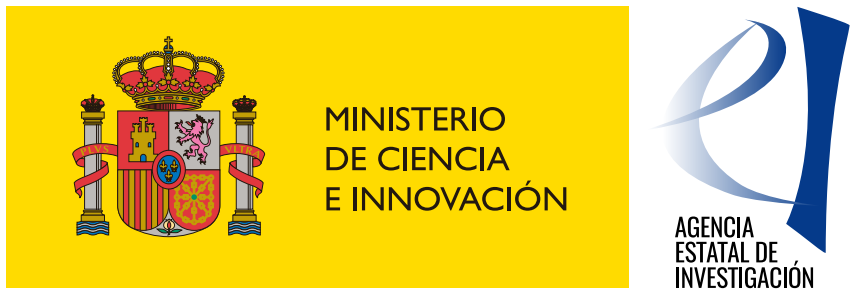W.P.1 – Design of an ecological instrument for the early detection of neuro-psychiatric disorders.
First, the most appropriate neuropsychological tests to be used as a base truth (gold standard
data), and the identification of the relevant data or scoring to be captured, are identified. The
applications included in WP2 will be evaluated and unmet needs will be identified so that the
design and development of new ones can be addressed. Workshops will be held with experts
from the clinical field (neurologists, neuro-psychologists, gerontologists) to evaluate the
content and appearance aspects of the final applications to be included. Expert opinions on
the ecological validity of the final system will also be collected, including the intelligent
conversational agent (WP3) as orchestrator of the system.
W.P.2 – Design of an ecological instrument for the early detection of neuro-psychiatric disorders.
The starting point is the existing conclusions in the scientific literature on applications with wide
acceptance by the elderly (e.g., virtual conferences, games). These applications will be directly
integrated into the ecosystem. From there, additional applications will be identified to cover the
three axes for a healthy aging, namely socialization, promotion of physical exercise, and
maintenance of cognitive reserve. As an initial reference, the exploitation of wearable devices
to capture different types of biometric signals; the gamification of daily life activities, and
vocational learning after retirement will be considered. Through workshops or focus groups
with experts, it will be determined what other applications and services should be developed
according to four requirements: high level of usability for the target audience, acceptability,
being non-intrusive, and with potential for capturing relevant data for the early detection of
neuro-psychiatric conditions.
W.P.3 – Design of an ecological instrument for the early detection of neuro-psychiatric disorders.
An intelligent conversational agent will be designed and developed to act as a ‘virtual
geriatrician’ at home, hosted by a smart speaker (e.g., Amazon Echo, Google Home), but also
to be used from a wearable device such as a smart watch. Under the restriction that the
conversations are to be initiated by the user, the most appropriate mechanisms will be
investigated so that, in a transparent and non-intrusive way, it promotes the use of the
ecosystem tools generated in WP2 and collects relevant data for the detection of neuro-
psychiatric deterioration from informal conversations. Existing natural language processing
(NLP) and natural language understanding (NLU) techniques will be applied.
W.P.4 – Design of an ecological instrument for the early detection of neuro-psychiatric disorders.
Within this package, the Data Management Plan (DMP) is generated along the first months,
(cf. Sect. 2.1.3). From there, and taking as a starting point the data generated from user
interactions with the ecosystem (WP2) and conversational agent (WP4), this work package
addresses the application of ML algorithms to the data collected. Using the results of the
classical clinical tests (WP1) as a base truth, the computational model will be trained, and the
performance of different algorithms will be evaluated through the use of cross-validation
techniques for training and testing the data. Besides, the most suitable evaluation metrics will
be investigated by comparing a broad set of existing metrics (e.g., precision, recall, accuracy,
F1-score, confusion matrix, ROC curve and precision-recall curve, among others). Finally, the
quality of classification will be confirmed utilizing the Cohen’s kappa coefficient, which provides
a measure of the quality of the classification and discards the influence of a random result. The
results of the first pilot (WP5) will be analyzed and the conclusions will serve to adjust and
optimize the ecosystem and conversational agent for the second pilot. In both cases, the
results will be compared using both individual data sources and groups of them, to determine
the most relevant ensembles of features and the elements of the ecosystem whose use should
be promoted for the purpose of early detection of neuro-psychiatric diseases. Efforts will be
focused on distinguishing between depression and mild cognitive impairment. A visual
dashboard will also be created for healthcare professionals.
W.P.5 – Design of an ecological instrument for the early detection of neuro-psychiatric disorders.
The evaluation protocol will be designed taking into account the required bio-ethical
considerations. A first pilot will be carried out with the first results of the project between M19
and M21. Results will feed a second version of the ecosystem to be validated in a second pilot
between M28 and M33. Sample selection will be carried out by considering all relevant aspects
(e.g., age ranges, education, gender, urban / rural environment, technological dexterity, level
of physical practice and level of socialization, among others). A participation of 25 people in
pilot 1 is deemed as acceptable for an initial system validation. For pilot 2, a significant sample
must be selected for the degree of prevalence of these conditions in Galicia. This WP is
responsible for generating informed consents and authorizations by the Ethical Committee of
Galicia, which meets every month. The reports of the results of the pilots will include the raw
data generated for analysis by WP4, and the results of the surveys that allow evaluating the
acceptability and usability of the ecosystem generated in WP2.
W.P.6 – Dissemination and technology transfer.
This work package will be carried out in accordance with the provisions of section 2.2 of this
report.
This research was supported by the Spanish Ministry of Economy, Industry and Competitiveness Grant PID2020-115137RB-I00 funded by MCIN/AEI/10.13039/501100011033




